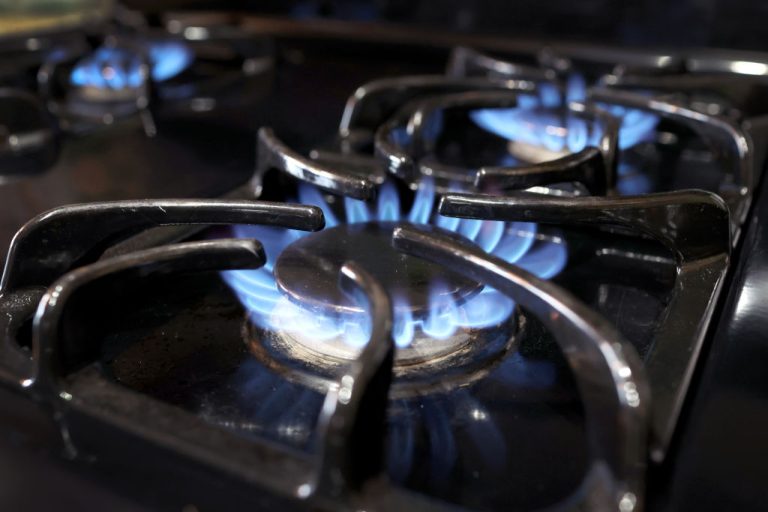In early January, the Consumer Product Safety Commission (CPSC) published a report suggesting that emissions from gas stoves can be hazardous, igniting a politically heated debate over their continued use.
Adding to the controversy is a study released on Dec. 21 last year entitled “Population Attributable Fraction of Gas Stoves and Childhood Asthma in the United States” which argues that the use of gas stoves is a contributor to rates of asthma among American children.
The authors of the study claim that “12.7% of current childhood asthma nationwide is attributed to gas stove use, which is similar to the childhood asthma burden attributed to secondhand smoke exposure.”
‘Any option is on the table’
The study, along with numerous news articles written on the topic, kicked off a wave of debates over gas stoves that soon broke down along partisan lines, with conservatives fearing increased government control over private matters and liberal pundits pressing for regulation.
According to a Jan. 9 article published by Bloomberg, Richard Trumka Jr., a Biden-nominated commissioner for the U.S. Consumer Product Safety Commission, characterized gas stoves as a “hidden hazard” and said that “Any option is on the table. Products that can’t be made safe can be banned,” suggesting that the CPSC could very well ban the appliance.
Success
You are now signed up for our newsletter
Success
Check your email to complete sign up
The same report claimed that roughly 40 percent of U.S. homes have a gas stove that emits air pollutants “such as nitrogen dioxide, carbon monoxide and fine particulate matter at levels the EPA and World Health Organization have said are unsafe and linked to respiratory illness, cardiovascular problems, cancer, and other health conditions.”
Trumka made similar comments last month: “We need to be talking about regulating gas stoves, whether that’s drastically improving emissions or banning gas stoves entirely,”
He added that “I think we ought to keep that possibility of a ban in mind, because it’s a powerful tool in our tool belt and it’s a real possibility here.”
The controversy inspired numerous headlines by American established media including by Mother Jones that wrote, “Federal Agency to Consider Ban on Gas Stoves,” and another article by Forbes titled, “U.S. Regulators And State Lawmakers Consider Banning Gas Stoves – Here’s Why,” leading many to believe that authorities are indeed seeking to outright ban gas stoves.
Mixed messaging
However, Trumka was only saying that there could be a possible ban on new gas stoves, not the ones already in use in American’s homes.
The mixed messaging prompted numerous politicians to take to Twitter to air their grievances over a potential ban.
Responding to a tweet by Trumka which claimed that “gas stoves can emit dangerous level of toxic chemicals,” Republican Congressman Gary Palmer tweeted, “Over 40 million American households use gas stoves. This type of power should never have been given to unelected bureaucrats and it is time for it to end.”
Following backlash, Trumka appeared to partially walk back his previous comments tweeting, “Thanks for your interest! To be clear, CPSC isn’t coming for anyone’s gas stoves. Regulations apply to new products. For Americans who CHOOSE to switch from gas to electric, there is support available – Congress passed the Inflation Reduction Act which includes a $840 rebate.”
Polarized debate
Trumka’s comments did not appear to satisfy many Republicans and right-wing media outlets, with Fox News running an article on Jan. 12 headlined, “Biden’s war on your kitchen continues with proposed gas stove ban,” while others said they didn’t like the idea of banning new gas stoves either.
Senator Tom Cotton, a Republican representing Arkansas, took to Twitter on Jan. 9: “Democrats are coming for your kitchen appliances. Their desire to control every aspect of your life knows no bounds – including how you make breakfast. They just can’t help themselves.”
Texas Congressman Ronny Jackson also railed against the prospect of restricting gas stoves, exclaiming on Twitter that “I’ll NEVER give up my gas stove. If the maniacs in the White House come for my stove, they can pry it from my cold dead hands. COME AND TAKE IT!!”
Jackson’s tweet attracted a response from Democrat Alexandria Ocasio-Cortez, who tweeted: “Did you know that ongoing exposure to NO2 from gas stoves is linked to reduced cognitive performance.”
The controversy has inspired an array of memes, echoing the popular “Don’t tread on me” phrase, replaced with statements like “Come and take it” accompanied by a simple picture of a gas stove or element.
Weighing in on the debate, Republican Florida Gov. Ron DeSantis, held up pictures of memes at a recent press conference saying “Don’t tread on Florida” and “Let us alone” with pictures of gas stoves.
The conflict prompted Youtuber and host of America Uncovered and China Uncensored, Chris Chappell, to ask, “Is it just me, or is the culture war getting dumber?”
There is even a bill circulating that aims to prevent a ban entitled the “Stop Trying to Obsessively Vilify Energy Act” or the STOVE Act.
READ MORE:
- True Number of Chinese Pandemic Deaths in the HUndreds of Millions, Says Founder of Falun Gong
- Spheres: Exploring the Mystery and Mysticism of Nature’s Most Perfect Form
- Treasure Discomfort – Comfort Kills Growth and Productivity
Electric or Gas?
The relevant numbers on how Americans do their cooking may come as a surprise given the politically charged messaging in recent weeks.
According to a survey by Statista, around 38 percent of Americans use a gas stove and 68 percent use an electric stove. In the vast majority of Republican-run states, more than 70 percent of people use electric stoves.
There are only a handful of states where a majority use gas stoves. Most of them are Democrat-run, including California, New Jersey, and New York.
The predominance of electric stoves in the United States is due to several reasons. Electric stoves are generally cheaper, they are easier to install, as they do not require a gas line to be run, and in parts of the U.S., like the south, most homes are heated with electricity, not natural gas so electric stoves are the default.
Despite the raging battle on social media platforms between Republicans and Democrats, it’s likely that most Americans don’t really care about the issue and parties from across the political spectrum enjoy or prefer using gas stoves, but what about the health concerns?
Health concerns
Safety officials in the United States have been worried about gas stoves for some time, since at least 1985 because they do in fact release pollutants such as nitrogen dioxide, carbon monoxide and dangerously small particulate matter, which, according to experts, could contribute to childhood asthma rates.
An article published by The Guardian on Jan. 6 cites research claiming that one in eight cases of asthma in children in the U.S. is caused by gas stove pollution.
Two of the researchers, Brady Seals and Talor Gruenwald belong to the Rocky Mountain Institute, a non-profit organization with a focus on the environment that advocates for zero-carbon emissions. The organization aims to transform “the global energy system to secure a clean, prosperous, zero-carbon future for all.”
But numerous other studies on the matter indicate that there is no clear causal relationship between gas stoves and asthma.
Pro-gas groups, like the American Gas Association, regularly cite a multi-year study, involving 47 countries that found no association between gas as a cooking fuel and asthma.
A study published in 2004 entitled “Housing characteristics and children’s respiratory health in the Russian Federation” failed to find any evidence that gas cooking increased asthma-like symptoms.
A 2013 study found a link to asthma only in girls, not boys.
It’s uncertain whether gas stoves indeed contribute significantly to childhood asthma.
When looking at asthma rates among children in the U.S. by state, one will find that children in Florida experience higher rates of asthma than children in Illinois, according to an American housing survey conducted by the U.S. Census Bureau. However, Illinois has a higher rate of gas stove ownership than Florida.
A 2013 meta-analysis of 41 studies found that gas stoves increased the risk of childhood asthma by just 2.8 percent.
Experts say that to mitigate possible risks gas stoves pose, owners should increase their ventilation, use a HEPA filter, or simply open a window.







